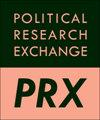Breakdown by disengagement: Tunisia’s transition from representative democracy
IF 1.8
Q2 POLITICAL SCIENCE
引用次数: 0
Abstract
On 25 July 2021, Tunisian president Kais Saied suspended parliament, lifted the immunity of its members, and dismissed the prime minister and the government. Tunisia’s post-revolutionary democracy had thus succumbed to a populist president within two years from his electoral victory in the context of widespread popular disillusionment with the entire political class. This article draws on the work of Peter Mair, in particular his analysis in Ruling the Void (Citation2013), to understand democratic breakdown in Tunisia. I argue that political dynamics in Tunisia diverge significantly from the standard model of democratic backsliding. Instead, I conceptualize the Tunisian case as breakdown by disengagement. The relative success of Tunisian democratization after the 2014 elite compromise paradoxically fuelled a crisis of representation: The main political camps lost popular support, populist challengers were strengthened, and citizens disengaged from conventional politics in ever greater numbers. Popular disengagement and elite withdrawal into a sphere of competition protected by the elite pact gave rise to a void at the heart of Tunisian democracy. While Kais Saied’s anti-party project proposed to fill this void with an alternative political system built from the bottom up, there is growing evidence of authoritarian retrenchment instead of democratic renewal.脱离接触的崩溃:突尼斯从代议制民主的过渡
2021年7月25日,突尼斯总统赛义德暂停议会,取消其成员的豁免权,并解散了总理和政府。因此,突尼斯革命后的民主制度,在民众对整个政治阶层普遍失望的背景下,在选举胜利后不到两年就屈服于一位民粹主义总统。本文借鉴了Peter maair的作品,特别是他在《无效统治》(2013)中的分析,来理解突尼斯的民主崩溃。我认为,突尼斯的政治动态与民主倒退的标准模式大相径庭。相反,我将突尼斯的情况概念化为脱离接触导致的崩溃。2014年精英妥协后,突尼斯民主化的相对成功反而引发了一场代表性危机:主要政治阵营失去了民众支持,民粹主义挑战者得到加强,越来越多的公民脱离了传统政治。民众的脱离和精英撤退到精英协议保护下的竞争领域,在突尼斯民主的核心产生了空白。尽管赛义德的反党计划提出用自下而上建立的另一种政治制度来填补这一空白,但越来越多的证据表明,威权主义的收缩,而不是民主的复兴。
本文章由计算机程序翻译,如有差异,请以英文原文为准。
求助全文
约1分钟内获得全文
求助全文

 求助内容:
求助内容: 应助结果提醒方式:
应助结果提醒方式:


